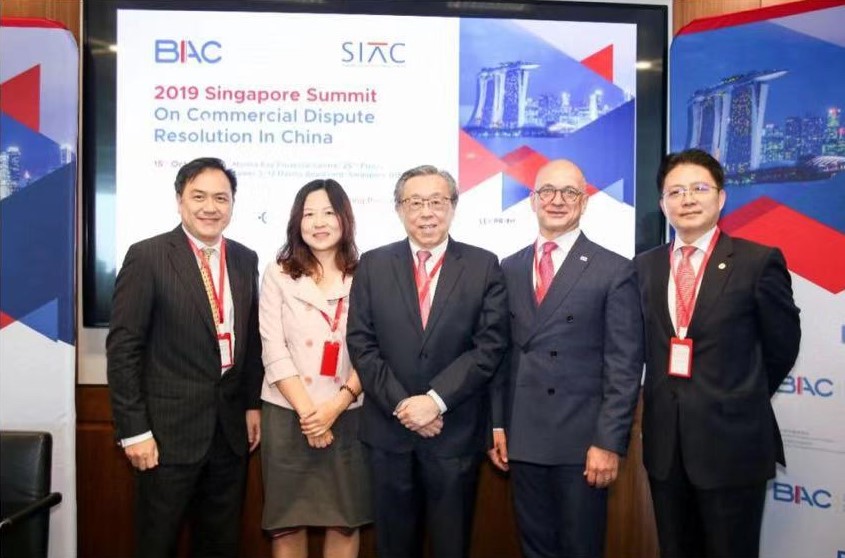More Trade and Investment Disputes Anticipated as Asia Economy Grows
Dispute resolution in Asia has witnessed marked developments this year. Hong Kong, although still an important center for arbitration hearings, is facing increased competition from other jurisdictions, especially Singapore.
As Asia’s gross domestic product is forecast to grow around 6% annually over the next few years, a jump in cross-border transactions will inevitably result in more trade and investment disputes.
This anticipated development along with a whole host of other issues important to legal and business leaders in the region were at the forefront of several conferences JAMS participated in during the fall in Asia. Here are some highlights.

China and the Singapore Convention
In April, Singapore and China inked agreements relating to China’s trillion-dollar Belt and Road Initiative infrastructure project. Sectors where both countries will strive for enhanced cooperation include logistics, e-commerce, infrastructure and legal services.
The agreement paves the way for Singapore, already one of the world’s leading arbitration centers, to build on its capacity to resolve international disputes.
Arbitration provisions are now considered a must for international contracts. Meanwhile, mediation is now gaining more recognition following the Singapore Convention on Mediation in August, where 46 countries became signatories—the highest number of first-day signatories of a United Nations trade convention.
The U.S. and China were two of the first countries to sign, and the number of signatory countries has since risen to 51.
The Singapore Convention seeks to streamline the enforcement of international mediated settlement agreements, just as the New York Convention (1958) did for arbitral awards.
At the Beijing Arbitration Commission’s (BAC) summit on commercial dispute resolution in China, which was held in Singapore on October 15, the audience was reminded that there are still cases in Chinese courts in which recognition and enforcement of foreign arbitral awards can be refused. We also learned about the reform of the investor-state dispute settlement system and the improvement in the quality, efficiency and environmental protection of construction projects in China.
Notably, although Singapore and China have different legal systems, the essential principles of law and dispute resolution have many similarities.
Hong Kong
Despite several months of protests in Hong Kong, the Hong Kong International Arbitration Centre’s (HKIAC) flagship ADR conference in Asia was particularly well attended. The world's leading arbitrators and ADR practitioners discussed how arbitration can address new challenges while flourishing in a period of unprecedented growth.
The ever-evolving global economy has shown the need for regionalization and specialization in international arbitration.
JAMS sponsored ADR in Asia for the second year in a row, and JAMS’ Director of International Operations Ranse Howell presented on the impact of unconscious bias in negotiations and examined the impact of external influences on negotiation strategy and outcome.
Howell explained how a neutral third party can use a process framework to foster safe and productive discussions, stressed the importance of listening and outlined different ways to deal with emotions.
The GAR Live Hong Kong and ABA conferences held at the HKIAC provided further opportunity to listen to legal experts on a wide range of topics focusing on the negotiation of cross-border deals.
The ABA’s “Asia-Pacific Forum: Navigating the Life Cycle of a Cross-Border Deal” included topics such as mergers, cross-border transactions and ethics.
JAMS neutral Conna Weiner was part of the “Deals Gone Bad” panel, which emphasized the importance of transaction documents, including properly drafted arbitration clauses. Weiner also stressed the value of effective mediation preceding and during arbitration.
Alister Beecher is JAMS’ Chief Representative for the Asia-Pacific Region. He engages with global law firms in Asia and builds relationships with arbitration and mediation centers in China. He speaks, reads and writes Chinese.
Disclaimer:
This page is for general information purposes. JAMS makes no representations or warranties regarding its accuracy or completeness. Interested persons should conduct their own research regarding information on this website before deciding to use JAMS, including investigation and research of JAMS neutrals. See More
